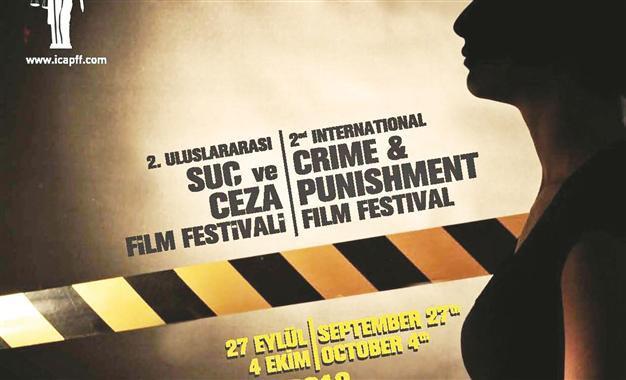Film festival focuses on discrimination problems
ISTANBUL - Anatolia News Agency

Crime and Punishmnet Film Festival focuses on problems in the society. The festival committee will once again host disucssions like they did last year.
This year’s Crime and Punishment Film Festival will focus on the issues of violence against women and discrimination in society. The festival’s second-annual edition will be held Sept. 26 through Oct. 4, and will once again try to draw attention to the relationship between justice and the cinema.
The festival is supported and organized by Istanbul University’s law department and Başakşehir Municipality, and will take place at various venues in Istanbul. This year’s festival will also host discussion panels and two conferences on violence against women and discrimination, as they are portrayed in the cinema. Some 130 panel members and speakers from Turkey and abroad will gather for the festival.
The festival will include almost 150 films from 50 different countries, including 60 feature films, 25 documentaries and 60 short films. Screenings will take place at three different movie theaters and at Istanbul University.
This year’s festival will also include such competition for the International Golden Scale Award, for a feature-length film, and the International Golden Scale short movie contest. The movies in competition will be focused on this year’s themes of violence against women and discrimination.
Discrimination issues in the society
“Discrimination and violence against women are very important social issues. These issues are important problems in the world,” festival president and Istanbul University professor Adem Sözüer said, speaking to Anatolia news agency. “The way that cinema portrays and law perceives these problems, and the way they reflect this to society, are very important. The second Crime and Punishment Film Festival will focus on these issues and reflect the cinematic perception of these important problems.”
Each country has a different style for tackling issues in society, Sözüer said. “In countries in which different cultures and [people with] different political and religious beliefs live together, there are many discrimination problems. While a behavior may be considered discriminatory in one society, it may be perceived as a discriminative act in another. The perception of discrimination varies from society to society.”
It can be difficult to prove when something has humiliated a person, but nothing makes violence and discrimination right, Sözüer said. The second Crime and Punishment Film Festival will gather many professors and speakers from Europe, America, Asia and Africa together in order “to discover what the differences and deficiencies in society are, in terms of violence and discrimination,” he said. The festival will seek answers to these problems. “Our aim is to talk about human rights in an international arena,” Sözüer said.
State and private organizations should provide women with greater opportunity, in terms of working and existing in society on equal terms with men, Sözüer said, adding that the problem of discrimination against women can be solved in that way. “However, we have seen many important developments on this issue, such as positive discrimination [affirmative action].”
The important thing is to monitor how changes in the law are reflected in daily social life, Sözüer said. “The fact that women are discussing politics and law is a very important development for us. The important thing is to guarantee women and men equality in every area of social life.”
The festival aims to improve social awareness by communicating the repercussions of the relationship between crime and justice in the cinema; contribute to social change by increasing communication, solidarity and cooperation; and to popularize the sense of equality and encourage people to support it. In this way the festival’s organizers hope it will help to develop democracy.
